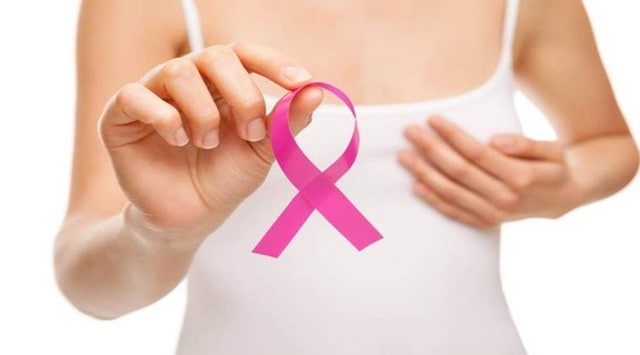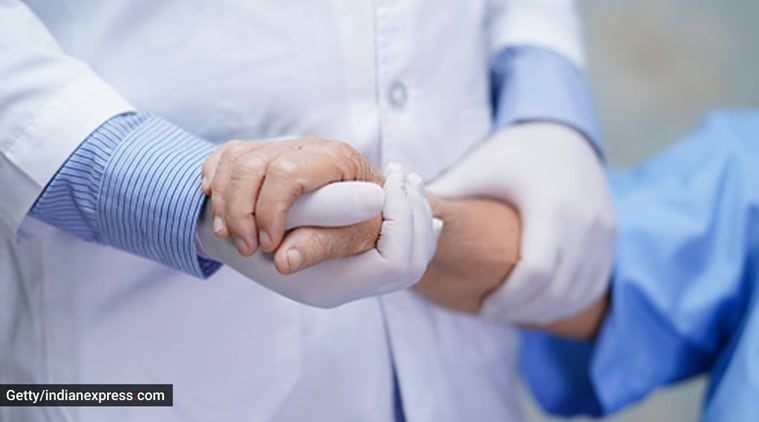- India
- International
Covid-19 pandemic leads to 80% drop in routine cancer screening, limits research
COVID-19 has left a negative impact on cancer care, disrupting the diagnosis and treatment in most of the patients in India.
 Delays in cancer screenings and treatment are expected to lead to more than 10,000 additional deaths from breast and colorectal cancer over the next decade. (Source: Thinkstock Images)
Delays in cancer screenings and treatment are expected to lead to more than 10,000 additional deaths from breast and colorectal cancer over the next decade. (Source: Thinkstock Images)The coronavirus pandemic and the subsequent lockdowns have impacted not only cancer care but also the research in the field. The uncertainty has introduced new risks for cancer patients, disrupting the delivery of cancer treatment and the continuity of research.
“Many elective surgeries were cancelled to redirect resources and healthcare staff to manage the pandemic. But at the same time, it has revolutionised clinical care by the introduction of telemedicine, artificial intelligence and digital healthcare services. It was the need of the hour to shift to the digital medium so that continuous healthcare services could be provided to the needy patients and curtail the spread of the virus so that patients can avail the services within the comfort of their houses,” said Dr(Col) R Ranga Rao, chairman- Paras Cancer Center, Paras Hospitals, Gurugram.
The pandemic led to a challenging and unprecedented situation for those who did not know that they were battling cancer. “Various studies have suggested that the pandemic led to a roughly 80 per cent drop in routine screening appointments that could diagnose new cancers in March and April. Since cancer screening can’t happen virtually, cases of breast, colon and cervical cancer also increased. Most of the screenings require an in-person procedure like a colonoscopy (for colon cancer), mammogram (for breast cancer) or a pap smear (for cervical cancer),” he added.
 The uncertainty has introduced new risks for cancer patients, disrupting the delivery of cancer treatment and the continuity of cancer research. (Source: Getty Images)
The uncertainty has introduced new risks for cancer patients, disrupting the delivery of cancer treatment and the continuity of cancer research. (Source: Getty Images)
The pandemic has taken a toll
Studies show there has been a decline in the number of tests to screen for cervical, breast and colon cancer by 85 per cent or more after the first Covid-19 cases were diagnosed in India.

“Delays in cancer screenings and treatment are expected to lead to more than 10,000 additional deaths from breast and colorectal cancer over the next decade. However, as we are getting back to normal, many healthcare centres are once again encouraging patients to come in for routine care. Many have implemented safety protocols (like limitations on visitors, getting rid of waiting rooms and mandatory COVID-19 testing for certain patients and staff) that make it safe for most patients to come in for screening tests. Doctors are also asking outstation cancer patients, who are in the advanced stage, to get their chemotherapy done from their nearest hospital just in case travelling is an issue,” he told indianexpress.com.
Covid-19 can be harsh on cancer patients
Covid-19 can lead to a dangerous consequence of having an overaggressive immune response known as a “cytokine storm,” which can damage lung and other tissues. Patients with cancer, who are treated with immune-stimulating therapies such as immune checkpoint inhibitors, chimeric antigen receptor (CAR) T-cell therapies and bi-specific T-cell engagers (BiTEs), are at the risk for complications if the immune response produced by these therapies results in an attack on normal, healthy tissue.
Patients treated with CAR T-cell therapies and BiTEs, in particular, can develop a side effect known as cytokine release syndrome, which is similar to the cytokine storm in patients with Covid-19. Researchers have theorised that the virus could aggravate cytokine release syndrome in patients treated with certain immunotherapies, but studies have not definitely shown that this is happening, a new report states.
Impact on cancer research
To limit the spread of COVID-19, many laboratories have developed new policies so that limited number of lab workers can enter. This also resulted in putting many studies on hold. Many projects supported by private philanthropy groups faced funding issues. “Drastically decreased donations to cancer-focused philanthropic organizations have also been witnessed. A report suggests that the American Cancer Society expects a USD 200 million decrease in donations this year and has not been able to accept applications for research grants for the Fall grant cycle. This is not all. Some cancer centers also put a hold on all the enrollment on clinical trials entirely during the height of the pandemic. A survey of dozens of clinical investigators in March found that nearly 60 per cent of respondents had halted screening and/or enrollment in certain trials, and that half of their institutions had ceased collection of blood and other tissue for research purposes. Despite these challenges, investigators have come up with a variety of ways to adapt to challenging circumstances so that trials could continue. These include: leveraging telehealth, e-signatures for trial documentation and shipping oral medications and allowing tests to be done even outside the lab,” he shared.
Lessons learnt from COVID
Learn to live with uncertainty
Cancer patients and caregivers, by necessity, have to become adept at living in limbo. Will cancer come back? We don’t know. Will we be alive in two years? Again, undetermined. It’s maddening. It’s also a way of life.
Be prepared, not panicky
It’s good to educate yourself, but you want to find the right resources and avoid stories that feed into the panic. The more informed you are, the more you’ll feel in control of what’s happening.
Stay connected with others — and yourself
No matter what happens, it’s essential that one always remains connected to oneself and the loved ones. It’s easy to become isolated and lonely. But that makes you weak, both mentally and physically. We can’t control what’s happening right now, but we can control how we respond to it. Things may seem to go haywire but every day there’s something to be thankful for. Find what makes you happy and focus on that.
May 02: Latest News
- 01
- 02
- 03
- 04
- 05


























